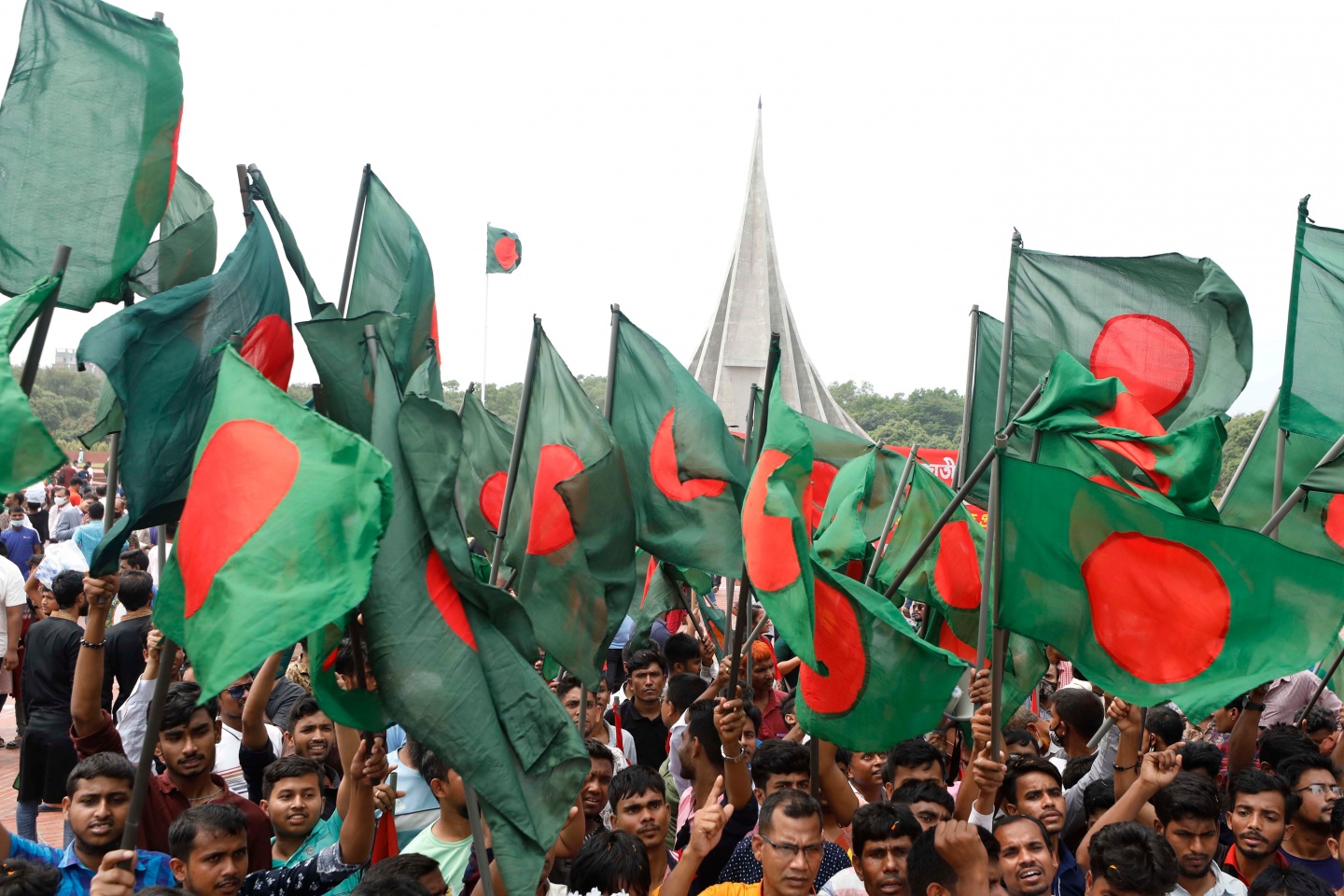7 August, 2024Student protests in Bangladesh, sparked by the government's reinstatement of a job quota system favouring descendants from the independence war in 1971, have had a severe impact on the country's manufacturing industries. The garment sector, in particular, has been hit hard, exacerbating the already fragile conditions for workers and significantly disrupting their livelihoods. The violent government response to the protests has resulted in over 450 deaths, highlighting the deadly nature of the unrest.
The protests began on 1 July following a High Court decision to reinstate a quota system that allocates one-third of civil service positions to relatives of those who fought in Bangladesh's 1971 war of independence. The Supreme Court has since scrapped most of the quota, leaving it at five per cent, but the government’s heavy-handed response resulted in the deaths of over 450 students, activists, and workers, along with thousands injured.
Many women workers have faced harassment and assault, and there has been a severe crackdown on civilian access to information and freedom of expression, including an internet shutdown.
Against the insecurity over people's lives in the country, Parliament was dissolved on 5 August after Prime Minister Sheikh Hasina had fled the country. On 7 August, Dr Mohammad Yunus was appointed chief adviser in Bangladesh and will form an interim government.
This unprecedent situation is directly affecting workers, particularly those in the manufacturing industries. The protests have also highlighted broader governance and human rights issues in Bangladesh.
IndustriALL Bangladesh Council (IBC), made up of IndustriALL affiliates, has engaged with the Bangladesh Garment Manufacturers and Exporters Association (BGMEA) and the Bangladesh Knitwear Manufacturers and Exporters Association (BKMEA) to demand:
- Protection of wages by ensuring all workers receive their wages for the curfew period
- No job losses, retrenchment, or harassment of workers due to the situation
- Respect and safeguard the safety and rights of all workers and their families
- Engagement in dialogue with trade unions, particularly regarding labour law reforms, minimum wages, and employment policies
- The IBC also calls on the government of Bangladesh to restore human rights and equity for victims of state violence, including fair compensation and improved workplace safety
Bangladesh’s garment workers have long endured difficult conditions, including low wages, unsafe working environment and suppression of labour rights. The minimum wage protests since 2023 have seen many workers and trade union activists arrested and subjected to violence, including police brutality. It is a time to build a sustainable future for the RMG sector with proper wages and working conditions.
A.M. Nazim Uddin, IndustriALL Bangladesh Council president, says:
"Workers and their families have been severely affected by the recent unrest, blockades, and curfew. Hundreds of thousands of precarious workers, including those in the garment, chemical, and shipbreaking industries, have lost their earnings in recent days. Commodity prices have also surged. We appeal to the government led by Dr. Yunus to restore and uphold human rights and to ensure the development of human-centred policies.”
“The situation in Bangladesh is heartbreaking. We're deeply saddened by the loss of lives during the unrest. Our thoughts are with the families of the victims, and everyone affected by this violence. It's alarming that Bangladesh is among the ten worst countries for working people, according to the 2024 ITUC Global Rights Index. It is time for the interim government in Bangladesh to restore rule of law and respect freedom of speech, honour its commitments to international human rights bodies including the ILO, and engage in meaningful dialogue with all stakeholders, including trade unions,”
says Atle Høie, IndustriALL general secretary.

